In the Words of Families and Partners
 |
have changed the whole way we look at living. a huge mind shift from describing my son by all of his limitations to really showcasing his abilities.” ~ Parent who participated in the F-Words Foundations Course |
 |
This is a fantastic tool for us to use when supporting families! I feel so lucky to work for an agency that is so forward thinking, and we get to start implementing this right away.” ~ Frontline practitioner who participated in the F-Words Foundations Course |
F-Words Foundations
A course that encourages people to approach childhood disability with a focus on factors that are important for all kids’ healthy development, namely functioning, family, fitness, fun, friends and the future.
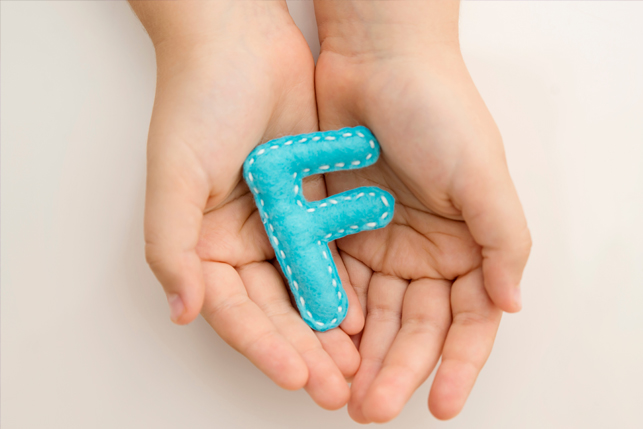
1,050 people have accessed the F-Words course so far.
What it is
The ‘F-words’ are six key areas that this research team argues should be the focus in childhood disability. Built upon the World Health Organization’s International Classification of Functioning, Disability and Health framework, they encourage us to think about factors that are important to any child’s development and well-being, such as their activities and environment. Introducing this way of thinking to families and service providers can result in measurable changes to self-reported family empowerment, parenting confidence, and experiences of family-centred service.
Next Steps
This project aims to make foundational F-Words training available across Canada by creating a free, self-paced online course in English and French. The research team will evaluate its acceptability, feasibility and usability through online surveys and interviews. They’ll also compare it to an in-person version of the course.
Alex’s Story: a family’s experience with FARP
 |
The Fetal Alcohol Resource Program was there for me and my son in our time of need. We had only recently received the diagnosis that my son did indeed have FASD. I was distraught and not sure where to turn. From the first phone call, I felt supported, educated and hopeful.
The workers have advocated for my son in the school system and for the first time in years, he’s actually looking forward to starting school this fall. I feel less anxious about it too! The FARP team also linked me with a support group and I no longer feel alone in this maze called FASD.” |
Fetal Alcohol Resource Program (FARP)
A bilingual program that provides service navigation and other forms of support for people with FASD and their families. It also equips service providers in the wider community to understand and address the needs of the FASD population.
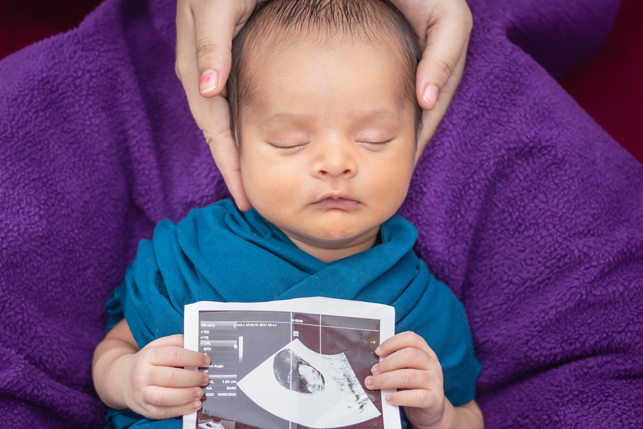
Principal investigators
James Reynolds, Queen’s University
Manon Kelso, ABLE2
To date, FARP has trained more than 4,850 people working in sectors such as education, health, law enforcement and social services. In addition, its team has responded to over 900 requests from families for navigational and clinical support.
What It Is
Now active in three Ontario regions, FARP began as a navigation service, helping to connect people living with FASD and their families to existing programs in their community. It still fulfills this role, but it also hosts support groups and provides families with FASD workers who can help them to get a diagnosis, understand the medical system, advocate for their children at school, and so on.
“The Fetal Alcohol Resource Program”
Meanwhile, in the wider community, FARP raises awareness of FASD and trains professionals from a variety of sectors (e.g. education, healthcare, mental health, criminal justice, child welfare, housing, etc.) about the disorder and how to improve the ways they serve affected individuals.
Highlights of 2021-2022
In September 2021, FARP organized an awareness walk in Ottawa that put a focus on people’s lived experiences with FASD. Throughout the rest of the year, it hosted a total of 149 support-group meetings for 601 caregivers, teens and children. It is also seeing an increased demand for its FASD worker program, to the point where there is now a waiting list for this valued resource.
FARP is increasingly recognized for its FASD expertise: this year, it delivered 17 English-language webinars to a total of 850 participants and five more webinars in French to another 210 participants. The team also launched a community of practice for Ontario’s FASD workers, where 60 participants meet regularly to exchange their knowledge and work toward standardizing their practice across the province.
 |
is more confident in social situations. Many strategies have helped, and she made new friends.” ~ Parent of a child with ASD who participated in the Secret Agent Society intervention |
Secret Agent Society
A spy-themed life-skills program that helps school-aged children with ASD to “crack the code” of emotions and social interactions.
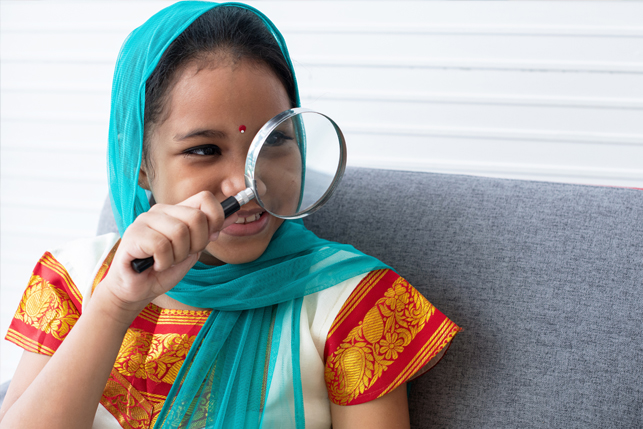
Principal investigators
Vivian Lee, Carleton University
Jonathan Weiss, York University
So far, 7 KBHN-partnered autism-service agencies have delivered Secret Agent Society to around 300 families.
What it is
Children with autism often have challenges with social skills and emotional regulation, which increases their risk of mental-health issues such as depression, anxiety disorders and behavioural challenges. The Secret Agent Society: Small Group Program (SAS: SG) digital software provides fun espionage-themed activities and tools including a digital board game, role playing and a computer game. It targets core areas of difficulty for kids with autism, such as developing desired friendships, working in teams, problem solving, recognizing emotions, expressing them in helpful ways and coping with negative ones.
Highlights of 2021-2022
Previously, this team had shown that SAS:SG is efficacious under ideal conditions, in a tightly controlled experiment with expert facilitators at York University. This year and last, the researchers partnered with autism-service centres in the Toronto area to see whether it can be similarly helpful in “real-world” conditions. It turned out that participation in the program was feasible for families even during a pandemic, with a high attendance rate across all sessions. What’s more, the children who completed the program tended to see improvements in their social and emotional skills, while parents and therapists reported being highly satisfied with it.
 |
It allowed me to recognize my grandchild’s growth and gave me insight into what I could help with to improve my grandchild’s progress.” ~ Grandparent who helped to deliver Nurturing the Seed, a developmental-support program with an Indigenous lens |
The Infant and Early Mental Health Hub for Training, Resources, & Tools (IEHMF Hub)
A one-stop-shop for practitioners to access resources on infant and early mental health.
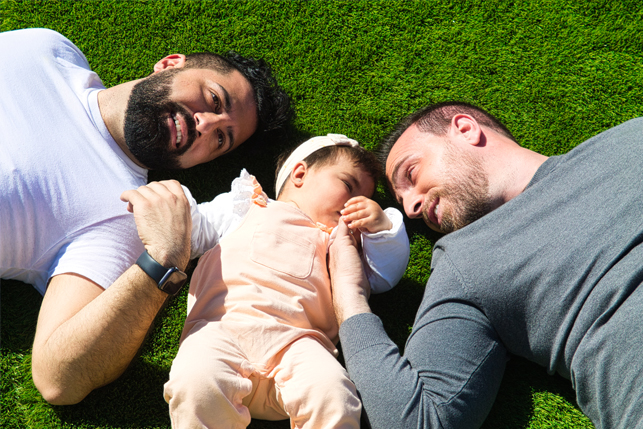
Principal investigators
James Reynolds, Queen’s University
Chaya Kulkarni, The Hospital for Sick Children
Over 12,000 users have an account with the Hub’s learning-management system
What it is
Mental health is crucial for people of all ages—and especially young children, because their brains are developing at an unequalled rate. The Infant and Early Mental Health Hub aims to improve young kids’ socio-emotional development by enhancing the skills and knowledge of the practitioners who work with them, including social workers, early-childhood educators, home visitors and medical staff.
The Hub’s many resources include a developmental-screening training module that could help practitioners detect more children with delays, and a developmental-support program called Nurturing the Seed, created in consultation with Indigenous communities across Canada.
Highlights of 2021-2022
The project team, known as Infant and Early Mental Health Promotion (IEMHP), continued to populate the Hub with evidence-based resources this year, including their coaching model, Coaching Connect. So far, 10 coaching sessions have been delivered to 105 participants.
Although in-person learning remains an option, all trainings are now offered online. A learning-management system that provides centralized access to them launched in September 2021. More than 12,000 people have signed up to it so far.
The team also established over 20 new partnerships and contracts. For example, the Ontario Association of Children’s Aid Societies funded access to the IEMHP’s 2022 Lecture Series for all 50 child-welfare agencies in Ontario. They also contracted IEMHP to develop a series of resources specifically for foster, kin or customary caregivers. Meanwhile, seven new communities and agencies adopted Nurturing the Seed, which is now available in both English and French.
 |
provides hope. You end up feeling more in control of your life. It makes you a better caregiver.”
~ Parent of a child with a neurodevelopmental disability |
Acceptance and Commitment Training (ACT) for Family Caregivers
Workshops that help the family caregivers of people with neurodevelopmental disabilities to cope with psychological pain.
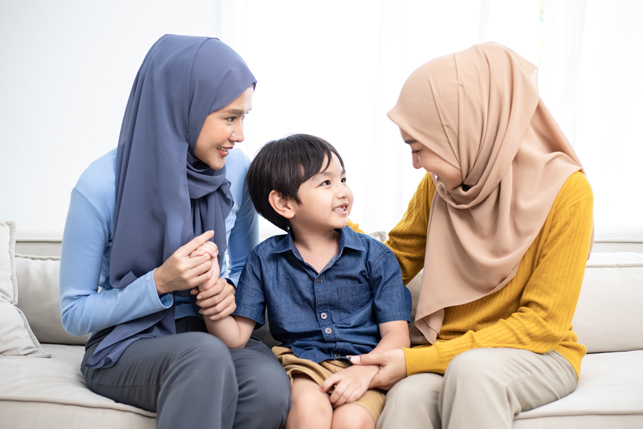
Principal investigators
Johanna Lake, Centre for Addiction and Mental Health
Yona Lunsky, Centre for Addiction and Mental Health
Kenneth Fung, University Health Network
What it is
ACT is an intervention that helps people improve their mental well-being by accepting their thoughts and feelings—even those that are painful—and living an engaged, meaningful life aligned with their values. This research team has helped to develop ACT-based workshops that are co-led by clinicians and caregivers together. Caregivers of people with autism and FASD who’ve participated in these workshops have reported feeling less depressed, stressed and isolated.
Next Steps
The team has been training new facilitators across Canada to deliver ACT workshops, both in person and digitally. The researchers will investigate what factors make it easy or hard for clinicians and caregivers to work together in delivering the intervention, whether or not it enhances participants’ mental health and resilience, and how it might need to be adapted as it spreads into new agencies and communities.
 |
With Dino Island, we’re working to transform the power of video games into a health intervention that children enjoy, parents can feel good about, and our researchers and clinicians can use to offer affordable, accessible treatment options.”
~ Robyn Woods, CEO and founder The Uncomplicated Family |
Dino Island
A therapeutic game that improves attention, short-term memory and other skills in children with neurodevelopmental disabilities.
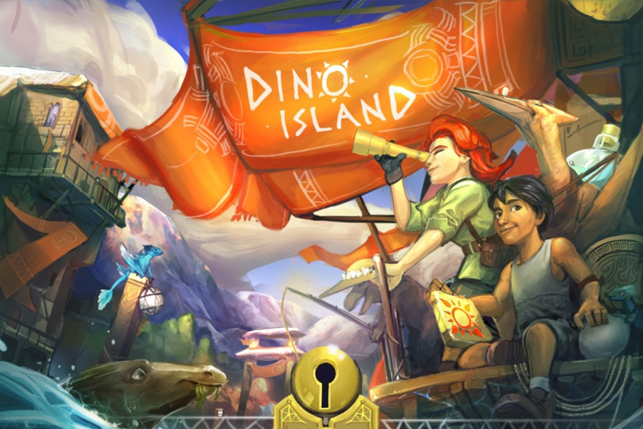
Principal investigators
Sarah J. Macoun, University of Victoria
Dino Island has benefited more than 2,000 families so far.
What it is
Dino Island is a tablet-based game designed specifically for children with neurodevelopmental disabilities. Studies in children with ASD and FASD have shown that it helps with attention, memory, self-regulation, emotional and behavioural control, self-efficacy, the use of problem-solving strategies and academic performance. A companion website trains therapists, teachers or parents to support children in playing the game and applying the skills it strengthens to other areas of life.
Highlights of 2021-2022
New implementation sites joined the project this year, including Calgary Quest School, a specialized school for kids with disabilities, and the Mayo Clinic, which will be conducting a trial with children who’ve been treated with cranial radiation for brain tumours.
The team also began studying how Dino Island works in private homes, under the supervision of parents. Based on participant feedback, they’ve made some changes to the intervention that will make it easier for families to monitor their progress and keep themselves motivated.
 |
In Family Checkup, we received individualized support that was tailored to our family’s unique situation and needs. We were deeply listened to and understood for what felt like the first time since beginning this journey to support our son.
The information shared was relevant and gave us the tools and skills to parent a neurodivergent child so much more effectively. We felt confident again as parents, and it has dramatically improved the functioning of our family as a whole.” ~ Parent of a child with ASD |
The Family Checkup
A program that improves the mental health of children with autism and their caregivers by working with parents to identify the family’s unique strengths and challenges, set goals for change, strengthen positive-parenting skills, and connect to needed supports.

Principal investigators
Teresa Bennett, McMaster University
Irene Drmic, McMaster Children’s Hospital
What it is
Research has shown that access to services, social connections and parenting skills can influence families’ well-being in important ways. Despite this knowledge, Canadian autism services rarely ask about—or act upon—these known factors. The Family Checkup program aims to change this. Parents first complete an assessment that helps the clinician to provide non-judgmental information about strengths and areas for improvement in parenting, as well as services in the community that could be helpful to the family. In addition, short sessions are available to help parents gain practical skills to address the specific challenges they’re facing.
Next Steps
Studies have found that Family Check Up often improves long-term child and caregiver mental health in families with non-autistic children, but we don’t yet know if it can be delivered effectively within an autism-service setting. This research team is studying this question by helping to establish a Family Check Up clinical team within the McMaster Children’s Hospital Autism Program. They will track it to see if it reduces emotional and behavioural problems in autistic children and improves parent well-being. They will also learn about how best to implement it into other autism-service centres.
 |
has brought together people who care about a common cause—those living with disabilities and the families who support them—and provided them a means of working together to identify challenges and to create solutions. Without a platform, we’d all still be working in siloes.”
~ Harriet Miller, Neurodiversity Inclusion Activist and Co-founder, President, Alink Foundation |
The Integrated Navigational Support Program
An initiative working with local partners to build better regional systems of navigation, so that families have an easier time finding and accessing the services they need.
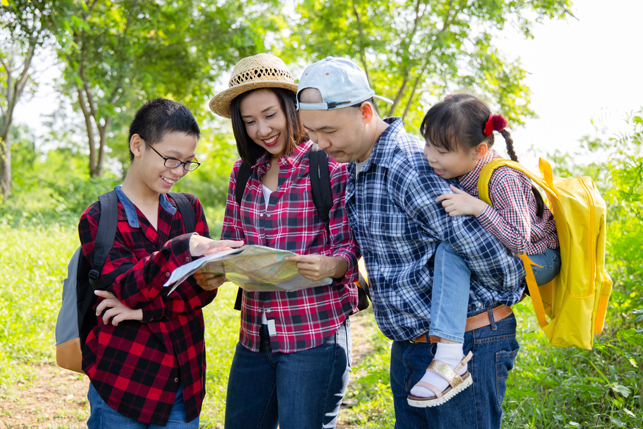
Principal investigators
David Nicholas, University of Calgary
Lucyna Lach, McGill University
Funding Partner
What It Is
Families raising children with neurodevelopmental disabilities are often forced to navigate a confusing patchwork of siloed, uncoordinated services spanning different sectors. They frequently struggle to determine what supports are available, which ones are appropriate for them at any given time and how to access them—especially at key life junctures such as diagnosis, school entry or transition to adulthood.
These researchers have collaborated with local service providers in three places—Calgary, Vancouver and Yukon—to improve service navigation, bridge service gaps and reduce barriers to access. They are also sharing learnings, tips and approaches that could help other regions across the country to follow their lead.
This project is funded by a generous donation from The Azrieli Foundation/La Fondation Azrieli to the Kids Brain Health Foundation. “Our work in neurodevelopment spans neurons to networks to neighbourhoods,” says Naomi Azrieli, Chair and CEO. “It is crucial to not only support ground-breaking research and clinical care for neurodivergent people, but also initiatives like the Integrated Navigational Support Program, to ensure individuals, families and communities can access and benefit from these resources.”
Next Steps
Each region is alleviating the burden that navigation places on families in ways that work for the local context. This year, the Yukon team secured ongoing funding and a permanent office for navigation services. Partners in Alberta developed training modules for professional navigators, partners in British Columbia created a navigators’ community of practice and both of these teams evaluated peer-support programs where parents of children with NDDs helped other parents to identify and access resources.
At a country-wide level, the investigators hosted a conference where people shared what they’ve learned about building navigation capacity. They also published and distributed a community guide offering strategies for raising the odds that families of children with NDDs in any given region can get the services they need, when they need them.
 |
I work in public health and see families and new babies often. I found this a very useful resource that I will definitely be drawing from to improve my practice.”
~ Frontline practitioner who took training through the Infant and Early Mental Health Hub |
Mimi’s Story: a family’s experience with Social ABCs
 |
Social ABCs has had a huge impact on our entire family, grandparents included, on the way we parent Mimi… For us, it was this community of support, with people versed in autism who at the same time truly celebrated Mimi for who she is.”
~ Parent of a toddler with ASD |
Social ABCs
An early-intervention program for toddlers who are showing social-communication challenges that may be signs of autism spectrum disorder.

Principal investigators
Jessica Brian, University of Toronto
To date, over 500 families have been able to access the Social ABCs.
What it is
Social ABCs is a program for toddlers with diagnosed or suspected autism and those showing signs of delayed social communication. Given that evidence-based interventions for kids under age three have not been widely available, Social ABCs is filling a service gap at a key stage of brain development when the potential to benefit is optimal. Trained coaches work with parents one-on-one or in a group setting, teaching them strategies for helping their toddlers to communicate and interact socially. A KBHN-funded team has been establishing the evidence base for the program and improving access to it across the country.
Social ABCs: Helping Toddlers and Parents Connect
Highlights of 2021-2022
The team has set up a website to ensure that people can learn about Social ABCs from a single reliable source, with information that is kept up-to-date.